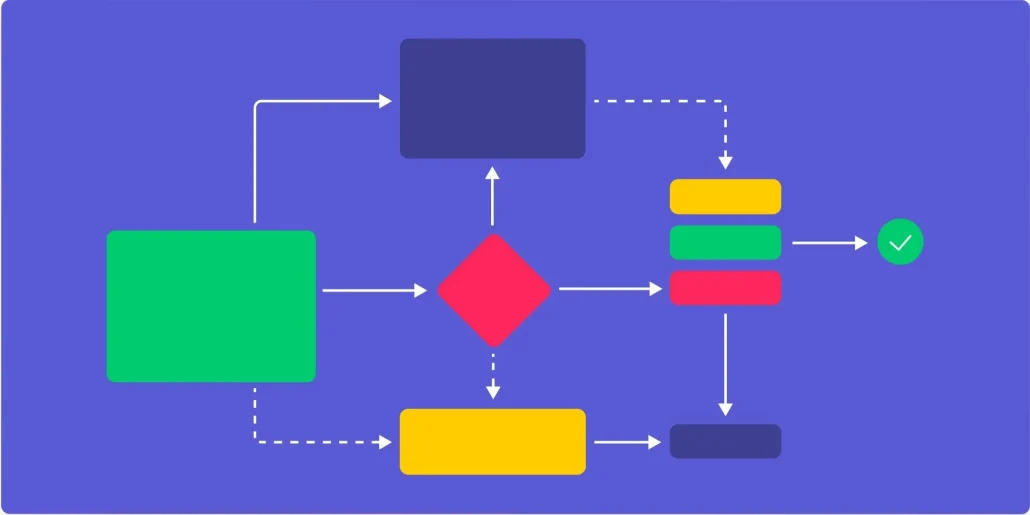Product Data Quality: 4 Ways to Enhance Product Data
Product data quality sits at the center of modern commerce. From eCommerce sites and marketplaces to ERP systems and printed catalogs, every customer interaction depends...
Published: Sep 19, 2024 Updated: Aug 27, 2025
Make managing product information easier, faster, and more enjoyable with a product information management or ‘PIM‘ platform, regardless of how many products your company sell. Using PIM, you can collaborate with NetSuite more effectively. PIMs for NetSuite 2025 expedite procedures and make product data management simpler. A NetSuite PIM’s API’s flexibility and automation make it simple for you to onboard new goods, scale up operations, and get rid of expensive, time-consuming manual labor. Let’s learn more about the top 4 PIMs for NetSuite 2025.
Key Takeaways
NetSuite is one of the most powerful ERP platforms, but it needs enriched, centralized product data to unlock its full value.
A Product Information Management (PIM) system ensures consistent, accurate, and engaging product data across every channel.
Distributors, retailers, and manufacturers using NetSuite can accelerate time-to-market, reduce errors, and improve the customer experience with PIM integration.

NetSuite is a cloud-based Enterprise Resource Planning (ERP) solution that helps businesses manage finance, operations, supply chain, and eCommerce in a single platform. As a comprehensive suite, it is widely used by enterprise organizations for managing everything from inventory and orders to accounting and procurement.
Financial Management: Automating billing, tax compliance, and reporting.
Inventory & Supply Chain: Tracking stock across warehouses, reducing over- or under-ordering.
eCommerce & Omnichannel: Connecting with online storefronts and marketplaces.
Customer Management: Streamlining CRM data for sales and support teams.
However, NetSuite was not designed to manage rich product information at scale. That’s where a PIM to NetSuite integration becomes essential.
Businesses using NetSuite often rely on spreadsheets, legacy systems, or manual entry to update product attributes. This leads to incomplete descriptions, inconsistent specs, and delays in launching products online.

Solution via PIM: By centralizing product information in a Product Information Management (PIM) system, companies can enrich their product data once and push it into NetSuite, ensuring accuracy across all connected channels.
Retailers and distributors often sell through multiple channels—eCommerce websites, Amazon, wholesale portals, and print catalogs. Keeping NetSuite’s product data aligned across all of these touchpoints is difficult.
Solution via PIM: PIM platforms connect seamlessly with NetSuite, enabling automatic syndication of enriched product content to each channel with formatting tailored to specific needs.
When product data lives in multiple disconnected systems, teams waste time tracking down details or fixing errors. This slows down product launches and frustrates sales teams.
Solution via PIM: PIM NetSuite integration speeds up workflows and approvals so new SKUs can be created, enriched, and published faster.
With a PIM, every attribute—from dimensions to digital assets—is stored in a single hub, then synchronized with NetSuite. This ensures clean, consistent, and enriched product listings across every channel.
A recent analysis of consumer purchasing behavior shows that buyers rely on detailed, accurate product content to make decisions. PIM ensures your NetSuite product data is not only correct but also compelling, reducing returns and boosting conversions.

Instead of product managers emailing spreadsheets back and forth, PIM enables automated workflows, validation rules, and approvals. This keeps NetSuite aligned with the most current product information.
PIM allows businesses to tailor content for each channel without disrupting the master product record in NetSuite. That means optimized listings for Amazon, detailed spec sheets for B2B portals, and engaging product storytelling for D2C websites.
Integrating the right PIM with NetSuite unlocks powerful benefits for data consistency and eCommerce performance. Based on industry research and user feedback, here are four of the best PIMs for NetSuite:

Pimberly’s PIM tool focuses on delivering a consistent and compelling product experience across all platforms. It centralizes product data and ensures high data quality standards. Its seamless NetSuite integration empowers a Product Experience Management (PXM) strategy with extensive resources and expert support.
SuiteApp—specifically Propel—connects PLM, QMS/eQMS, and PIM with NetSuite’s ERP and CRM modules. It supports real-time collaboration between product and commercial teams, streamlines workflows, and automates creation of item masters and Bills of Materials (BOMs) in NetSuite, ultimately reducing delays and manual errors.
Eureka Solutions is a long-standing UK NetSuite partner (since 2012). They offer a carefully phased PIM deployment aligned to each client’s specific needs, combining NetSuite’s omni-channel suite with their methodical approach to deliver unified product data management.
B2Sell offers an in-house PIM system for B2B organizations, enabling reliable capture, enhancement, and distribution of product data and digital assets. It supports real-time updates for SKUs, UPCs, descriptions, SEO metadata, and more—making it a top NetSuite-compatible PIM.
Q: Why do I need a PIM if I already use NetSuite?
A: NetSuite is excellent for ERP, but it wasn’t built to manage large volumes of rich product content like marketing descriptions, digital assets, and localized data. PIM NetSuite integration ensures product data is clean, enriched, and consistent everywhere you sell.
Q: How hard is it to integrate a PIM with NetSuite?
A: Many leading PIMs, including Pimberly, offer pre-built NetSuite connectors that simplify integration. Implementation timelines depend on your catalog size and business complexity, but most organizations see ROI quickly once workflows are automated.
Q: Can PIM reduce product returns?
A: Yes. Inaccurate product data is one of the top drivers of returns in eCommerce. By ensuring your NetSuite data is accurate and enriched with images, dimensions, and usage details, PIM helps set correct expectations and reduces costly returns.
To summarize: integrating a PIM with NetSuite is no longer optional for businesses managing large or complex product catalogs. It provides:

A single source of truth for product data
Faster time-to-market through automation
Better customer experiences with enriched product content
Streamlined omnichannel selling and reduced returns
If your business relies on NetSuite and you’re struggling with fragmented or inconsistent product data, now is the time to act. Explore why eCommerce platforms work better with PIM or connect with Pimberly to see how AI-driven PIM NetSuite integration can transform your operations.


